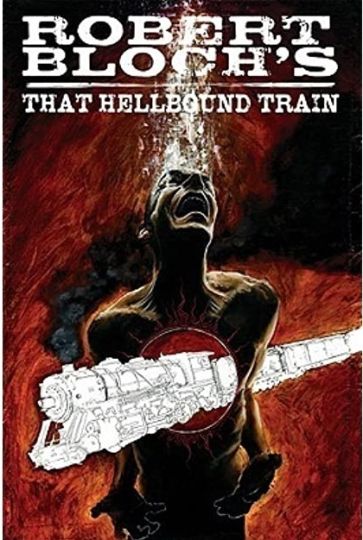Kris
This is another old fashioned story here. Beginning to think these early Hugo Voters were all a bit fuddy-duddy.
It is basically another variation on The Devil and Daniel Webster (which even if you haven’t read it or seen the film you will probably know it through numerous parodies, such as The Simpsons or The Chilling Adventures of Sabrina). This time about watches and trains. Told well enough but didn’t feel particularly special or noteworthy to me. I don’t really have anything else to say about it.
Kit
It’s very… stylized. I feel like I’m reading an old-style work song in story form. It’s got enough language to it that I don’t find it bad per se, but it’s not particularly exciting or new or unique. “Guy tries to get out of death by making a deal and it goes badly” predates the Christian devil. Though it’s not quite a morality play since he does manage to avoid actually ending up in Hell. But I don’t see how it was interesting enough to win a Hugo — you’ve seen my other reviews, you know I tend to wind up finding a lot to say about most stories. But there just… isn’t much to say about this one. It’s predictable and dull told in pretty prose — I’m less thinking about this story than I am wondering about what, exactly, happens to the rest of the world if the train can now never get to hell and he’s successfully trapped the devil. That’s a much more interesting story.
Mikayla
This story felt very predictable and was fairly boring. I spent most of the time speculating how stopping time would actually work. If everything just freezes in place, no matter how happy you are you’re just stuck there. Or does stuff keep happening, but then time isn’t stopped? It doesn’t make much sense, and the ending didn’t really answer the question. The people don’t seem frozen, but they can’t progress to hell? If he can have a job and things can change, then isn’t time working?
Anyways, I feel like I’m way more interested in these questions than the actual story is, which is just telling us about a man I don’t like or care about and how he ruined his own life because he couldn’t be satisfied with what he had. The ending was obvious from the very start, but I’m really not sure if it was intended to be.
I did find the observation about friendship potentially being the key to ultimate happiness interesting. In many stories you see romantic relationships centred and friendship devalued. It’s a single paragraph in the story, but I like seeing amatonormativity challenged like that.


